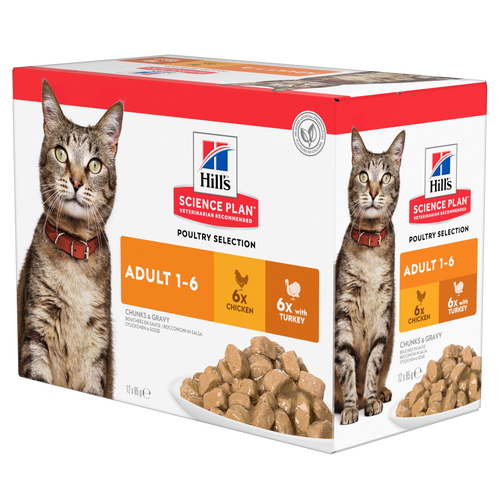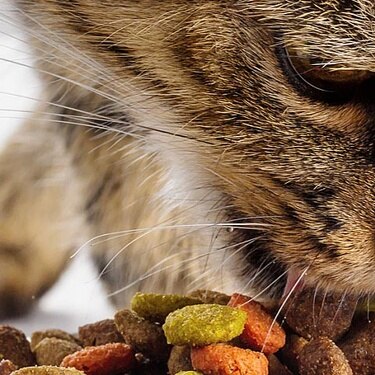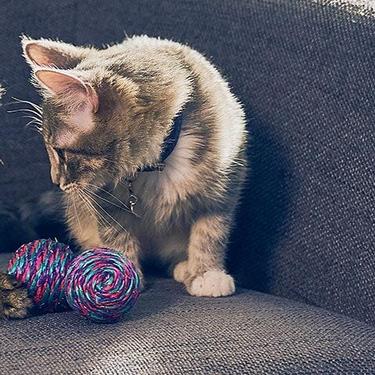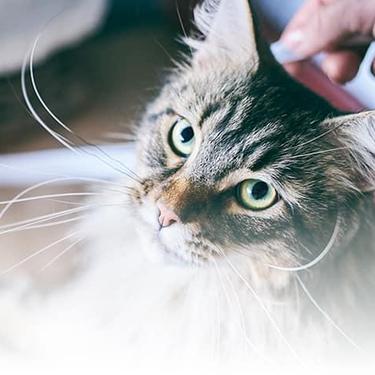
-
Find the right food for your petTake this quiz to see which food may be the best for your furry friend.Find the right food for your petTake this quiz to see which food may be the best for your furry friend.Featured products
 Puppy Food
Puppy FoodHill's Science Plan Puppy Multipack Wet Dog Food with Chicken & Beef are complete premium pet foods for growing puppies from weaning until 1 year old and for pregnant and nursing dogs. Your puppy will love these deliciously smooth and savoury minced loaves, formulated for balanced nutrition and overall health.
Shop Now Adult Wet Dog Food with Beef
Adult Wet Dog Food with BeefHill's Science Plan Adult Multipack Wet Dog Food with Chicken, Beef & Turkey are complete premium pet foods for adult dogs from 1 year. Your dog will love these deliciously smooth and savoury minced loaves, formulated for balanced nutrition and overall health.
Shop Now Mature Adult Dog Food
Mature Adult Dog FoodHill's Science Plan Mature Adult Multipack Wet Dog Food with Chicken & Beef are complete premium pet foods for mature adult dogs from 7 years. Your dog will love these deliciously smooth and savoury minced loaves, formulated to deliver the appropriate amount of energy to support the needs of adult dogs.
Shop NowFeatured products Adult Multipack Wet Cat Food with Beef, Ocean Fish & Chicken
Adult Multipack Wet Cat Food with Beef, Ocean Fish & ChickenTender chunks in gravy for cats, with high-quality protein to maintain lean muscle. With vitamin E and omega-3s & -6s for healthy skin and balanced minerals to support healthy vital organs.
Shop Now Light Adult Multipack Wet Cat Food with Chicken & Ocean Fish
Light Adult Multipack Wet Cat Food with Chicken & Ocean FishTender chicken chunks in gravy for cats, with L-carnitine and fewer calories for ideal weight management. Packed with high-quality protein, omega-6s, and vitamin E for shiny fur and healthy skin.
Shop Now Mature Adult Wet Cat Food with Chicken
Mature Adult Wet Cat Food with Chicken
Tender chicken chunks in gravy for mature adult cats. Made with easy-to-digest ingredients, high-quality protein for lean muscle maintenance and antioxidant vitamins C+E for optimal health.
Shop Now -
Dog
- Dog Tips & Articles
-
Health Category
- Weight
- Food & Environmental Sensitivities
- Urinary
- Digestive
- Joint
- Kidney
-
Life Stage
- Puppy Nutrition
- Adult Nutrition
- Senior Nutrition
Cat- Cat Tips & Articles
-
Health Category
- Weight
- Skin & Food Sensitivities
- Urinary
- Digestive
- Kidney
-
Life Stage
- Kitten Nutrition
- Adult Nutrition
Featured articles The Right Diet For Your Pet
The Right Diet For Your PetIn people, the right diet is very important. If you are eating the wrong way for your metabolism, activity level, age and lifestyle you could end up with health issues.
Read More Show some love with wet foods: a great choice for pets with health issues
Show some love with wet foods: a great choice for pets with health issuesShow some love with wet foods: a great choice for pets with health issues.
Read More The Incredible Science Behind Your Pet's Microbiome
The Incredible Science Behind Your Pet's MicrobiomeLearn what your pet's microbiome is, how it contributes to your pet's gut and overall health, and why nutrition is important in maintaining healthy microbiomes.
Read More -


Brenda Martin's cat, Max, once toppled a Christmas tree in his zeal to leap into it.
Max is gone now, but Brenda and her husband, John Myers, learned their lesson: Cats and Christmas trees can be a destructive force. So, in an effort to have a cat-safe Christmas tree, they began anchoring their live trees to the wall.
Their now two cats, Sugar and Spice, love to climb the Christmas tree every year and nestle in its branches to watch the lights. One Christmas, John walked in to find Spice had reached the top of the 9-foot tree.
"Sitting up there, perched like a star," Brenda says.

While it might appear to be near impossible to keep your cat (especially younger kitties) out of your Christmas tree, it is possible to alleviate the issues that might come with a curious climbing kitty.
A Cat Safe Christmas Tree
Cat behaviourist Pam Johnson-Bennett offers several ways to keep cats and Christmas trees safe. The best bet, she says, is to place the tree in a room you can close off when no one is supervising your fur baby. That way you can simply shut the door when you're away and guarantee you won't come home to any surprises.
But if that isn't possible, her other suggestions include taking the steps Brenda and John took:
- Attach the tree to the wall or the ceiling. By anchoring it with a fishing line and an eye bolt to either a wall or ceiling, you can make it much more difficult for the cat to knock the tree down.
- Invest in a heavy-duty tree stand. Find a tree stand that can manage the weight and height of a tree even if it's under attack by a climbing cat.
- Clear the area of furniture. A cat can use a nearby table, couch or bookshelf to launch themselves right into your tree.


Tasty Tips
Stop the Snacking
While Brenda and John have never had a cat who likes to actually eat the tree, there are kitties out there looking for a snack. Johnson-Bennett advises spraying the branches with a bitter anti-chew spray. There are several types on the market or you can make your own by mixing citrus oil — or fresh lemon juice — with water and spraying it on the tree. Keep in mind: Some cats are more averse to certain sprays than others, so you'll have to watch to see if the spray is enough to keep your cat away. If not, try another brand.
A cat munching on the tree is not just an annoyance, but a safety issue if you have a live tree, Johnson-Bennett notes.
"The tree needles are toxic if ingested and you also don't know whether fire retardants, preservatives or any type of pesticides were sprayed on the tree," she writes.
Ingesting pine needles can cause liver damage or even death, according to cat behaviour expert Marilyn Krieger. She tells Petcha that needles can puncture intestines, and an artificial tree's needles can cause an intestinal blockage.
Needles aren't the only toxic concern around a live Christmas tree. You may have poisonous holiday plants in your house, and you should be careful to make sure the cat doesn't drink from the reservoir around the live tree. Johnson-Bennett notes not only is tree sap is toxic, so are most preservatives you might add to the water, like aspirin.
How do you keep the cat out of the water? You can cover the reservoir with netting or duct tape — sticky side up — to keep them from being able to access the tree's water supply.
Wired for Trouble

Anti-chew spray should also be applied to the Christmas tree's light wires to deter chewing. Check out these other ways cat owners can protect their furry friend and still have a shining tree:
- Wrap the wires tightly around branches to limit dangling or loose pieces that can be irresistible to a cat.
- Pick steady lights — rather than twinkling or blinking lights — to lessen the chance your cat will want to play with them.
- Cover any cords leading from the tree to your outlet. Simply thread them through an empty paper towel or toilet paper tubes to protect them from a frisky kitty.
- Check your cat and tree for damage. If your cat has access to your tree when no one is home, make sure to check the wires frequently for damage from teeth or claws. Always unplug the tree when no one is nearby to supervise. If you believe your cat might have chewed a live cord, check their mouth for signs of burns and look for singed hair and whiskers. If you suspect your cat has been hurt by chewing on Christmas tree lights, call your veterinarian immediately.
Ornament Safety
You can't really fault your cat for loving ornaments. You have to admit that those shiny, swaying objects look a lot like toys. Your cat doesn't know that ornament is a third-generation family heirloom. So how do you get a cat to leave your precious ornaments alone? For Brenda, it's all about placement.
"The bottom third of the tree just has unbreakable stuff or things that were cheap that we don't care if they get broken," Brenda says. It might simply be best to leave your most valued and fragile ornaments in the box until you know how your cat will react to other ornaments on the tree.
For cats and Christmas tree harmony, Johnson-Bennett's suggestions for ornaments include:
- Choosing non-breakable ornaments. Otherwise, a cat might accidentally ingest a sharp piece or step onto it, requiring a trip to the vet.
- Hanging the ornaments more toward the center of the tree rather than on lower or exterior branches where they might be too accessible to resist.
- Using green twist-ties to secure ornaments to the tree. That way you can tightly secure the ornament to the branch, which will make it much harder for a cat to bat to the floor.
- Going retro. If your cat is tree-obsessed, consider decorating with simple paper ornaments and paper garland to protect your cat and your ornaments.
Whatever you do, don't let curious cats and Christmas trees put a damper on your festivities. Just ask Brenda — cats and Christmas trees are what Christmas memories are made of.
"They always have some new antics they're up to every year that involves the tree that always makes us laugh," she says. "It's part of our family traditions now."


Kara Murphy is a freelance writer and pet parent who lives in Erie, Pa. She has a goldendoodle named Maddie.
Related products


Tender chunks in gravy for cats, with high-quality protein to maintain lean muscle. With vitamin E and omega-3s & -6s for healthy skin and balanced minerals to support healthy vital organs.

Tender chicken chunks in gravy for cats, with L-carnitine and fewer calories for ideal weight management. Packed with high-quality protein, omega-6s, and vitamin E for shiny fur and healthy skin.

Tender chicken chunks in gravy for mature adult cats. Made with easy-to-digest ingredients, high-quality protein for lean muscle maintenance and antioxidant vitamins C+E for optimal health.
Related articles

There are three common ways to feed a cat. Each way has its advantages and disadvantages.

From essential vitamins & minerals to different types of meat, learn what to look for when choosing the best cat food for your feline.

Kittens grow a lot in their first year, so it is important to provide them with the proper nutrients early, so they grow up healthy and strong. Learn more.

Learn how to make homemade cat treats that are healthy for your pet with this recipe from Hills Pet Nutrition.

Put your cat on a diet without them knowing
Our low calorie formula helps you control your cat's weight. It's packed with high-quality protein for building lean muscles, and made with purposeful ingredients for a flavourful, nutritious meal. Clinically proven antioxidants, Vitamin C+E, help promote a healthy immune system.
Put your cat on a diet without them knowing
Our low calorie formula helps you control your cat's weight. It's packed with high-quality protein for building lean muscles, and made with purposeful ingredients for a flavourful, nutritious meal. Clinically proven antioxidants, Vitamin C+E, help promote a healthy immune system.

